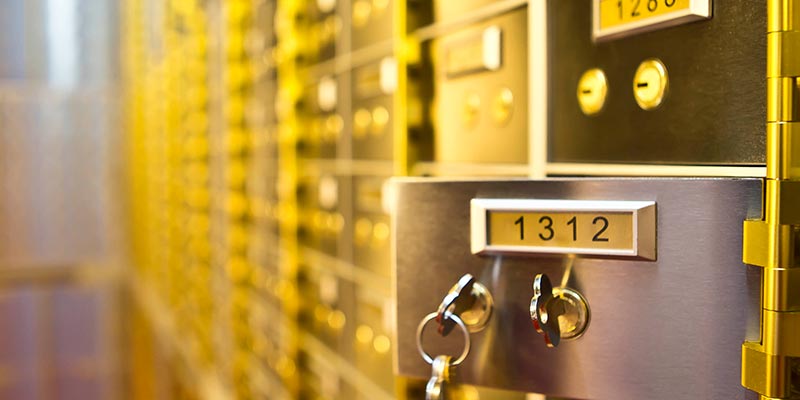
Another thing to watch out for is a coin company that will hold your gold for you in safety deposit boxes or elsewhere. Never buy from a coin company that does that. That defeats the whole purpose of owning gold. You want it there with you when an economic crisis arrives. During the chaos, what are your chances of getting your gold if it is stored at a company halfway across the country, or even in safety deposit boxes in a bank across town?
A viable alternative that affords better legal protection for your gold compared with the protection of banks and other financial institutions is an asset protection trust. With this kind of trust you still hold your gold in your possession while having powerful legal protection from a variety of financial predators.
So, once you own gold and silver coins, where do you store them? It sounds kind of crude, but most of my clients bury them. Here is a possible plan. First, get a 6” diameter PVC tube like the plumbers use and cut it into 12” to 18” sections. The amount of gold and silver you own will dictate the number of sections you need to cut. Next, get a couple of plastic drain ends like the plumbers use and some waterproof silicone. The gold coins come in plastic flips, so put as many gold coins as you can in a Ziploc bag and zip the bag shut. The Ziploc bag provides double water protection.
If you have silver coins, wrap them up in like manner. If you have a lot of silver, you will need more than one section of 6” PVC pipe. Once you have your coins in the pipe, then put some crumpled-up newspaper in the pipe for packing and water absorption, and seal the plastic drain ends in place with waterproof silicone. Now you are ready for the next stage, burying or hiding.
If you live in the country or on a farm, burying is relatively simple. If you have outbuildings or a wooded area, just pick a spot that you can remember easily and is easily accessible. There is no specific rule about how deep to bury the pipe, but you want to make it shallow enough so it is easy to dig it up if you need to leave in a hurry, but deep enough to deter a quick in-and-out coin grabber.
If you live in town and have a yard, then you need to pick a spot, preferably as far away from the house as possible, so it would be harder for a would-be robber to find it. If you live in an apartment, then the choices are more limited. I asked one very astute old gentleman who was living in an apartment where he stored his gold. Without hesitating, he retorted, “My ceiling beams are sagging.”
Other clients store their gold in hidden safes behind false walls, cement them in basement walls, hide them under a three-season porch or tuck them away carefully in a crawl space. Let your imagination be your guide. The next thing to do is to tell someone you can trust where you hid the coins, preferably the person who will be getting them when you pass on.
The final step, as one old-timer suggested, is to develop a ruse, a scheme to deter or fool a would-be robber. To do that, put a few dimes or half-dollars or silver dollars in a real secret place in your house. Meanwhile, 99.8% of your coins are somewhere else, out of harm’s way. That way, if someone comes to rob you, and if they threaten you with bodily harm, with great reluctance you can take them to that secret place and show them the silver coins, and you tell them, of course, that that’s all you have. At least that way they will be happy to get something of value, and they will probably leave in a hurry without harming you. Most people who come to rob you are in a hurry, and they don’t come with a shovel in one hand and a metal detector in the other.
One last thing not to do is to store your gold and silver in safety deposit boxes in a bank. Why? Look at what Roosevelt did in 1933 when he confiscated gold. He declared a banking holiday and raided everyone’s safety deposit boxes.
I have talked to five or six people in the last 10 years who have had things missing from their safety deposit boxes. I also personally have talked to one old-timer who lived through the 1933 confiscation, and he told me a true story about a wealthy friend of his who had a lot of valuables in his safety deposit boxes.
After Roosevelt declared a two-day banking holiday, the man went to his bank about a week later to check on his valuables. When he opened his safety deposit boxes, which had contained $1.4 million worth of diamonds, precious stones, jewelry, and gold coins, it was empty. He asked the bank president what had happened to his valuables. The man played dumb and said that he didn’t know. The man walked out the door, went home, and committed suicide.
